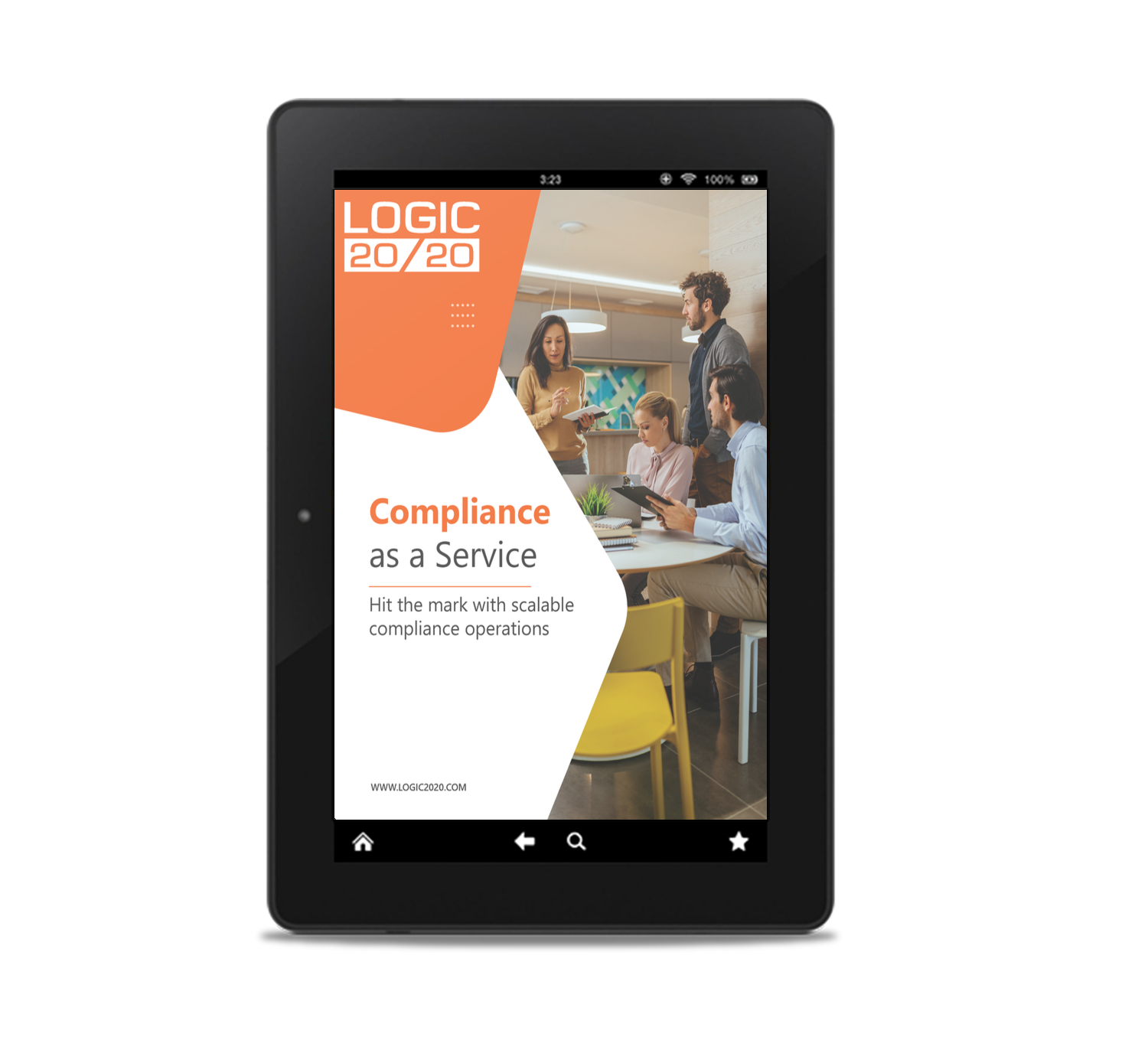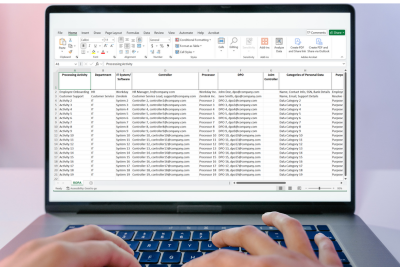5-minute read
When data privacy governance and regulations such as GDPR and CCPA went into effect, companies who spent months (or years) getting ready for them may have breathed a sigh of relief. But enforcement dates are not a finish line. Even if your company created and executed a comprehensive readiness plan in time for a deadline, the task of maintaining your compliance is just beginning—and it has no end date.
Ongoing responsibilities under data privacy laws
Your company may be well situated to fulfill your obligations under applicable data privacy laws today, but remember that technology doesn’t stand still, and neither does your business. Triggers such as mergers or acquisitions, new processes, new applications, new reports, and other events can significantly impact your compliance status, and you need to be ready for them. Gaining visibility and control over these changes is essential to maintain compliance.
In addition to watching for triggers, you also need to ensure that your team can execute the actions that privacy legislation mandates. These include honoring data subjects’ requests for erasure and reporting data breaches all within the required time frames whenever the need arises for data sources to ensure regulatory compliance.
Article continues below.

Compliance as a Service (CaaS) ebook
Get expert insights on how to hit the mark with scalable compliance operations.
We will never sell your data. View our privacy policy here.
As you look at your ongoing data privacy compliance strategy, remember to consider the following factors:
Monitoring compliance: How will you monitor the “big picture” of your organization’s compliance on a day-to-day basis? Having policies and procedures in place is half the battle; you also need mechanisms in place for ensuring that your employees follow them.
Data processor audits: How will you vet potential business partners who will process personal data on your behalf?
New processes and technology: How will you evaluate new processes and new applications to determine which ones are covered by the data privacy laws that apply to you, and if they are, how will you ensure that they offer the necessary security features, privacy by design, etc?
Record of Processing Activities (RoPA): What is your process for updating your RoPA to keep up with changes in your business?
Data Protection Impact Assessments (DPIAs): How do you determine whether a new process requires a DPIA, and what is your process for ensuring that your team conducts them when needed?
Maintaining compliance is an ongoing investment that requires continuous effort and adaptation to evolving regulatory requirements.

Download a free ROPA template
Streamline GDPR compliance efforts with our free ROPA template, designed to help you efficiently document and manage data processing activities.
We will never sell your data. View our privacy policy here.
Building a data privacy governance committee
As you can see, maintaining your data privacy compliance level is no simple task, and you may be thinking “Who is going to manage all this?”
While your data protection officer (DPO) is responsible for overseeing your company’s overall compliance, it’s impossible for one person to have the required level of expertise—or the bandwidth—to monitor all impacted areas. Ongoing compliance across the organization requires the concerted effort of a team of experts, and that’s where your governance committee comes in.
When building your data privacy governance committee, consider the areas within your organization that privacy laws affect, and make sure that each has high-level representation, such as
- Education (HR/Communications)
- Data Processing (CIO)
- Policies and Contracts (Legal)
- Security (CISO)
Remember that your governance committee must have authority over your data privacy–related processes and the ability to exercise that authority. This will help you avoid the mistake that many organizations made with the project management offices (PMOs) they built for project governance. Because these groups lacked real authority, stakeholders saw them as a hurdle that slowed down business processes, and as a result, lines of business found ways to circumvent them. This breakdown in authority may have no real impact on the success of a project, but in the case of data privacy readiness, the potential consequences—steep fines as well as loss of customer trust—can be substantial.
Having representation from different areas within the organization ensures that data users have access to reliable and trusted information promptly, enabling them to utilize relevant data insights for informed decision-making.
Best Practices for Data Governance
Best practices for data governance include establishing a clear data governance framework, ensuring that data governance processes are consistent and effective. This involves defining roles and responsibilities, setting up governance structures, and creating policies and procedures that guide data warehousing and management activities. Implementing data quality management is also crucial, ensuring that data is accurate, reliable, and trustworthy.
Providing regular training and awareness programs is another best practice, ensuring that personnel understand and support data governance initiatives. This helps build a data-driven culture and ensures that everyone in the organization is aligned with data governance goals. Monitoring and evaluating data governance processes regularly is essential to ensure that they are effective and efficient, and to identify areas for improvement.
Aligning data governance initiatives with business objectives is critical, ensuring that data governance initiatives support business goals and outcomes. This involves understanding the organization’s strategic priorities and ensuring that data governance activities are aligned with these priorities. Governing data governance by a clear set of policies and procedures ensures that data governance processes are consistent and effective.
Ensuring that data is protected and secure throughout its lifecycle is another best practice, including data access controls and data security measures. This involves implementing robust security measures, regularly reviewing access permissions, and ensuring that data is handled in accordance with regulatory requirements. Providing regular updates and communication about data governance initiatives helps keep everyone informed and engaged, ensuring the success of data governance programs.
Data Access and Security
Data access and security are critical components of data governance, ensuring that data is protected from unauthorized access and breaches. Data governance programs should include data access controls, ensuring that data is only accessible to authorized personnel. This involves implementing role-based access controls and regularly reviewing access permissions to prevent unauthorized access.
Data security measures should include data encryption, firewalls, and intrusion detection systems, as well as regular security audits and risk assessments. These measures help protect data from external threats and ensure that any vulnerabilities are identified and addressed promptly. Data governance services initiatives should also include data backup and recovery procedures, ensuring that data is available and accessible in the event of a disaster or outage.
Data governance programs should include data privacy and compliance measures, ensuring that data is handled throughout its data lifecycle in accordance with regulatory requirements. This includes adhering to data protection laws and regulations, such as GDPR and CCPA, and implementing policies to ensure compliance. Data access and security should be monitored and evaluated regularly, with regular reporting and analytics to ensure that data governance processes are effective and efficient.
Data governance initiatives should include data literacy and training programs, ensuring that personnel understand data governance policies and procedures. This helps create a culture of data security and ensures that everyone in the organization is aware of their responsibilities. Data access and security should be integrated into the overall data governance strategy, ensuring that data is protected and secure throughout its lifecycle.
It’s a milestone, not a finish line
Many organizations become so focused on enforcement dates that they give little thought to what comes afterwards. Once your preparatory work sets you on the road of compliance, your mission going forward is to stay on track, which can be an even greater challenge due to potential data issues. By creating a data privacy governance committee with the necessary expertise and authority to manage compliance activities, you prepare your organization to adapt to future “triggers” and to fulfill your responsibilities on an ongoing basis thereby enhancing operational efficiency.

Streamline compliance with expert guidance
Logic20/20 delivers the regulatory knowledge, operational know-how, and technical expertise in data governance services to help you meet compliance obligations and remain ready to respond to regulatory inquiries.
- Compliance managed services
- Compliance process optimization
- Regulatory response readiness
- Compliance automation

